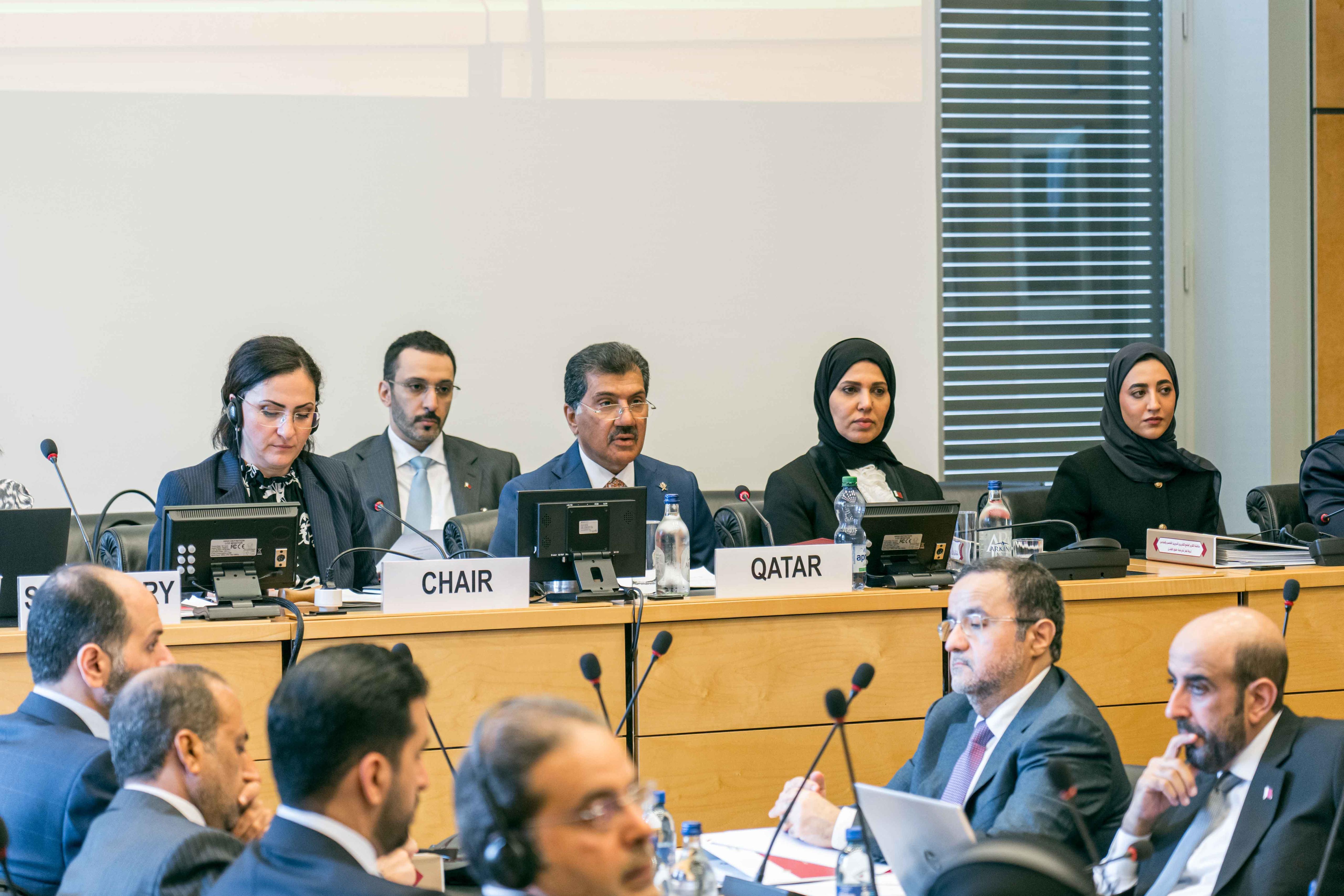Qatar Discusses Its Combined Fifth and Sixth Report Before the UN Committee on the Rights of the Child

Geneva, May 21, 2025
The State of Qatar discussed its combined fifth and sixth reports under Article 44 of the Convention on the Rights of the Child before the United Nations Committee on the Rights of the Child at the committee's headquarters in Palais Wilson, Geneva, on Wednesday.
The Qatari delegation was led by HE Secretary-General of the Ministry of Foreign Affairs Dr. Ahmed bin Hassan Al Hammadi.
In Qatar's official statement, HE Dr. Al Hammadi emphasized the country's strong belief in the importance of cooperating with the UN Committee on the Rights of the Child. He noted that Qatar views the interactive dialogue with the committee's experts as a valuable opportunity to review the concrete steps taken to promote and protect children's rights.
His Excellency highlighted that Qatar remains committed to implementing its obligations under the convention and the recommendations issued by the committee in the previous review, reaffirming the country's dedication to ensuring children's rights as a cornerstone for building a cohesive society.
HE Dr. Al Hammadi underscored that the national report reflects an extensive consultative process and a broad collaboration among multiple national entities concerned with children's welfare.
The report was prepared by a national committee chaired by the Ministry of Foreign Affairs, with contributions from the Ministry of Interior, the Ministry of Labor, the Ministry of Social Development and Family, the Ministry of Education and Higher Education, the Ministry of Public Health, the Ministry of Justice, the Supreme Judiciary Council, and the Public Prosecution.
Additionally, the National Human Rights Committee and the Qatar Social Work Foundation provided insights and recommendations.
HE the Secretary-General of the Ministry of Foreign Affairs affirmed Qatar's significant efforts to address and implement most of the recommendations and observations made by the committee during the previous review of its combined third and fourth reports.
His Excellency noted that the reporting process and the committee's concluding observations have yielded tangible benefits for children's rights in Qatar, including raising awareness of children's rights nationwide, strengthening understanding of the convention's provisions and Qatar's commitments, supporting voluntary institutions working in child welfare, enhancing partnerships and dialogue with stakeholders, and advancing ongoing legislative reforms related to children's rights and policy reviews.
His Excellency reaffirmed that promoting and protecting human rights, including children's rights, is a strategic priority for Qatar, reflecting the country's deep commitment to comprehensive reforms across constitutional, economic, social, cultural, and educational dimensions.
This commitment is embedded in Qatar National Vision 2030, which prioritizes human rights in multiple areas, including health and education, environmental sustainability, women's empowerment, rights of children and persons with disabilities, and rights of migrant workers.
Additionally, the State of Qatar has integrated these priorities into its National Development Strategy (NDS), with the latest third-phase strategy (2024-2030) aiming to achieve seven key outcomes of sustainable economic growth on fiscal sustainability, future-ready workforce, cohesive society, high-quality living standards, environmental sustainability, and distinguished government institutions.
HE Secretary-General of the Ministry of Foreign Affairs Dr. Ahmed bin Hassan Al Hammadi highlighted Qatar's successful model in creating a safe environment for children, emphasizing its adoption of a comprehensive child protection system.
His Excellency underlined that this system integrates multiple sectors, including education, healthcare, social welfare, law enforcement, and justice. Local child protection committees, composed of representatives from various institutions, address children's issues, monitor cases periodically, and provide integrated support services.
HE Dr. Al Hammadi Qatar also ensures rapid intervention by mental health and social professionals, legal support for children and families affected by violence, accountability for perpetrators of child-related crimes, and community awareness and training programs to enhance public knowledge of children's rights.
HE Dr. Al Hammadi reiterated that Qatar's commitment to upholding Islamic principles, on which its constitution is based, affirms the country's belief that children are the cornerstone of a nation's future.
He stressed Qatar's strong dedication to raising children in a safe and stimulating environment that respects their dignity and ensures their holistic development.
This commitment is enshrined in Articles 21 and 22 of the Qatari Constitution, which emphasize the family's role in protecting children from exploitation and neglect while ensuring a balanced upbringing.
Additionally, Qatar has developed a comprehensive legal framework to safeguard children's rights, covering areas such as education, healthcare, social protection, and juvenile justice, reflecting the government's determination to ensure children's well-being and holistic development.
HE Dr. Al Hammadi reaffirmed Qatar's unwavering political will, supportive environment, and full commitment to implementing the Convention on the Rights of the Child and its two optional protocols.
He stressed that protecting children's rights is both a legal and moral responsibility shared by all stakeholders.
Furthermore, His Excellency emphasized that Qatar considers human rights promotion and protection as an ongoing priority requiring continuous reform efforts, highlighting the need for proactive measures that align with evolving global challenges and transformations.

